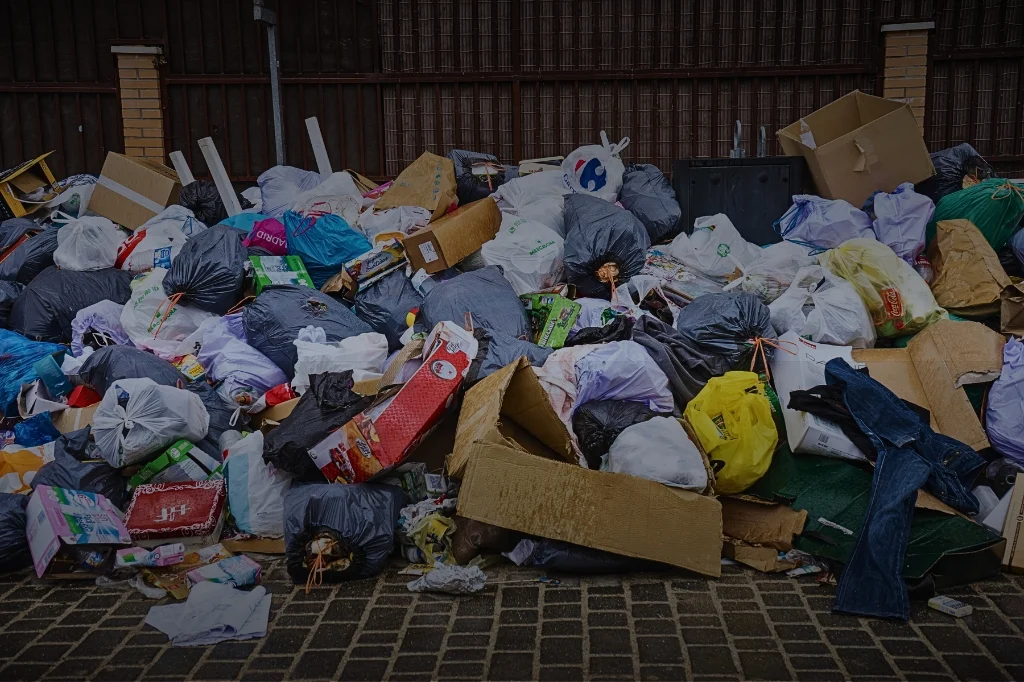Camping is an incredible way to connect with nature and get away from the hustle and bustle of daily existence. However, one often not noted aspect of camping is how to manage waste in a camping kitchen efficaciously. Proper waste control not only guarantees a purifier camping experience, but also facilitates defending the surroundings and natural world.
In this guide, we’ll discuss practical techniques on ways to manage waste in a camping kitchen.
Why Effective Waste Management is Crucial for Camping
When you’re out in nature, it is crucial to comply with the concepts of Leave No Trace. Learning how to manage waste in a camping kitchen facilitates minimizing your effect on the surroundings and keeps the campsite clean. Here’s why powerful waste management topics:
- Protects Wildlife: Improperly managed waste can attract wildlife, which would possibly lead to dangerous encounters or damage to the animals.
- Preserves Natural Beauty: Keeping your campsite free of muddle maintains the herbal splendor of the vicinity, ensuring it remains pristine for destiny campers.
- Promotes hygiene: Proper waste control prevents unsanitary conditions that could cause health problems.
7 Ways to Manage Your Camping Kitchen Waste
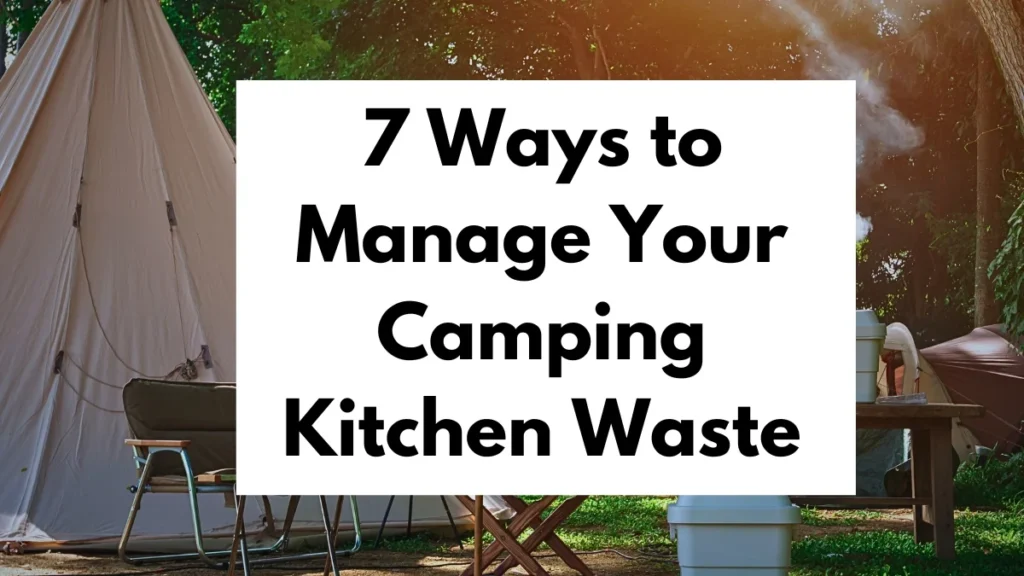
Effectively handling your camping kitchen waste requires planning and enterprise. Here are seven realistic ways on how to manage waste in a camping kitchen:
1. Plan Your Meals and Reduce Waste
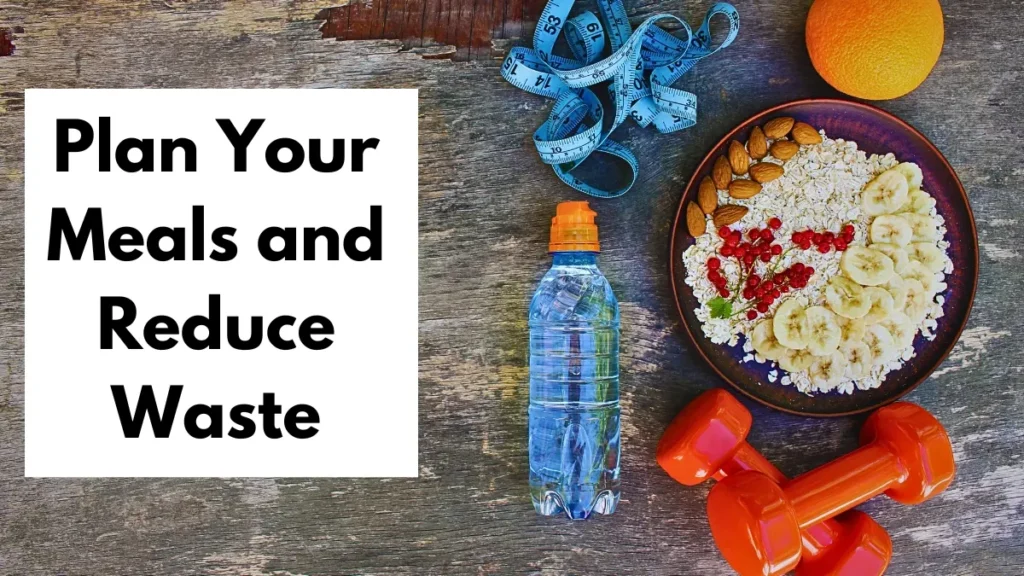
Planning your food ahead of time is one of the simplest ways to lessen waste. By preparing an in-depth menu and packing handiest the elements you want, you could minimize the amount of leftover food and packaging waste. For instance, recall the use of ingredients that serve multiple purposes or making ready food that can be without difficulty portioned.
This approach facilitates in decreasing the quantity of camping waste you generate and guarantees that you only bring what’s necessary, thereby reducing down on pointless waste.
2. Set Up a Waste Management System
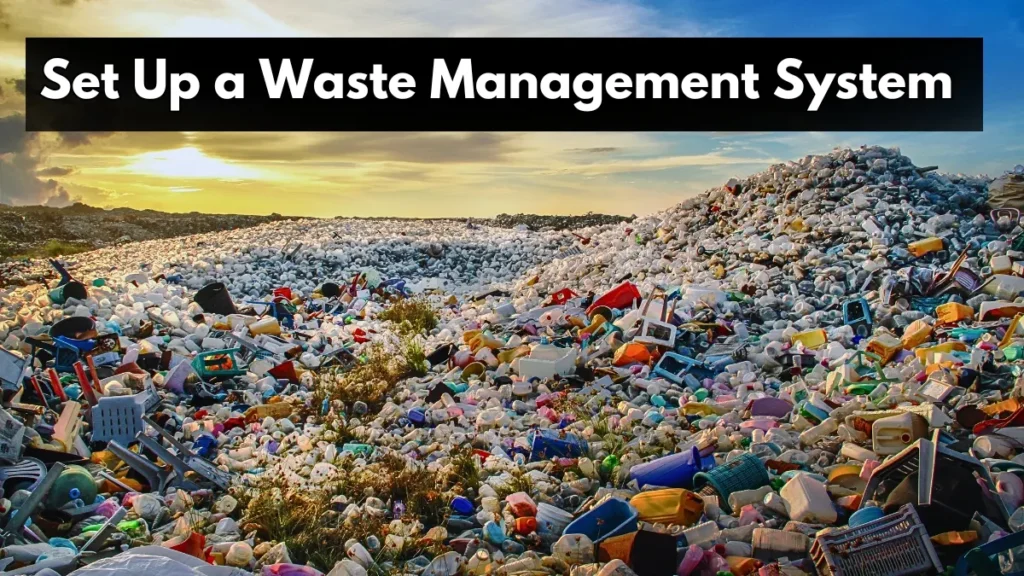
Setting up a well-prepared waste control system at your campsite can drastically streamline your waste disposal system. Use distinctive bins or baggage for various sorts of waste: recyclables, compostable, and widespread trash. Label those boxes certainly to avoid confusion. For example, you may have a blue bag for recyclables, a green bag for compostable, and a black bag for popular camping waste.
This gadget facilitates you staying organized and ensures that waste is taken care of effectively from the beginning.
3. Bring Reusable Items
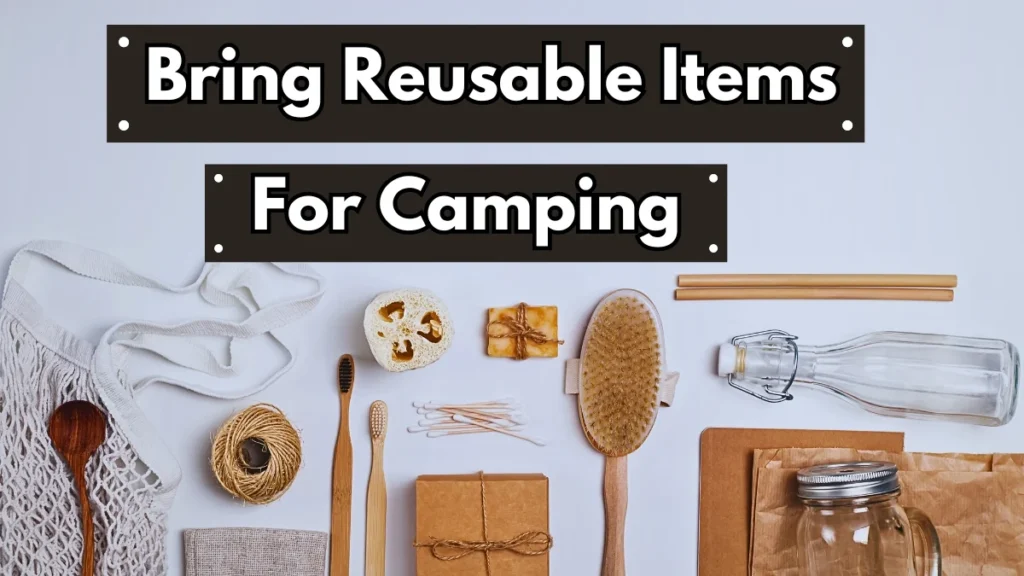
Opting for reusable objects over disposable ones is a critical step in dealing with your tent kitchen waste. Invest in durable, reusable dishes, cutlery, and packing containers. For instance, use metallic or bamboo utensils as opposed to plastic forks and knives, and produce a reusable coffee cup instead of single-use paper cups.
4. Pack Your Trash Properly
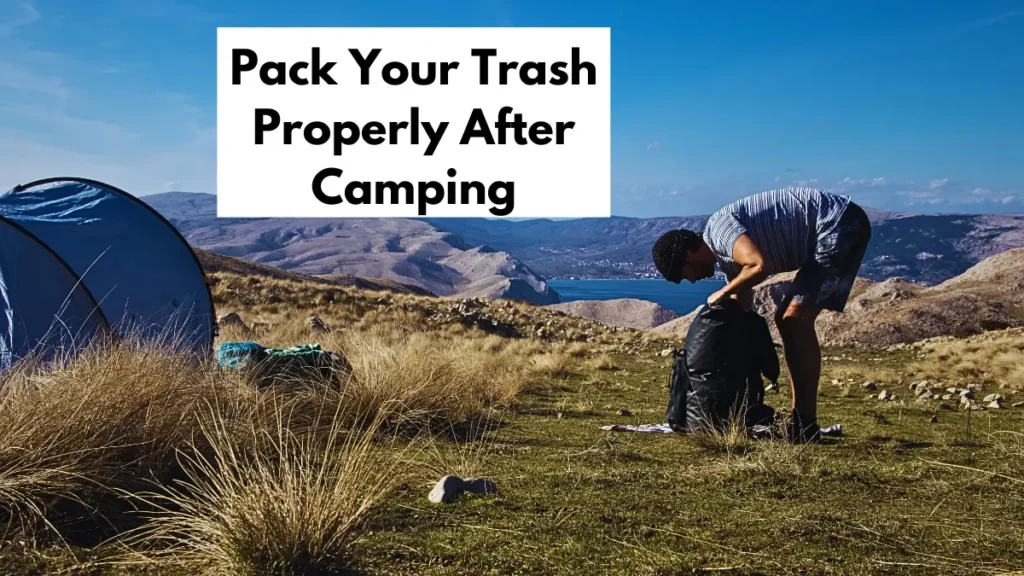
Knowing the way to manage your trash nicely is vital for keeping your campsite clean and ensuring that your waste is dealt with responsibly. Use heavy-duty trash bags that can resist the load and have the have the capability of sharpening the edges of the waste. Double-bag items like food scraps or any waste that might leak to prevent odors and spills.
Make sure that each piece of luggage is tightly sealed before transporting them out of the campsite.
5. Dispose of Waste Correctly
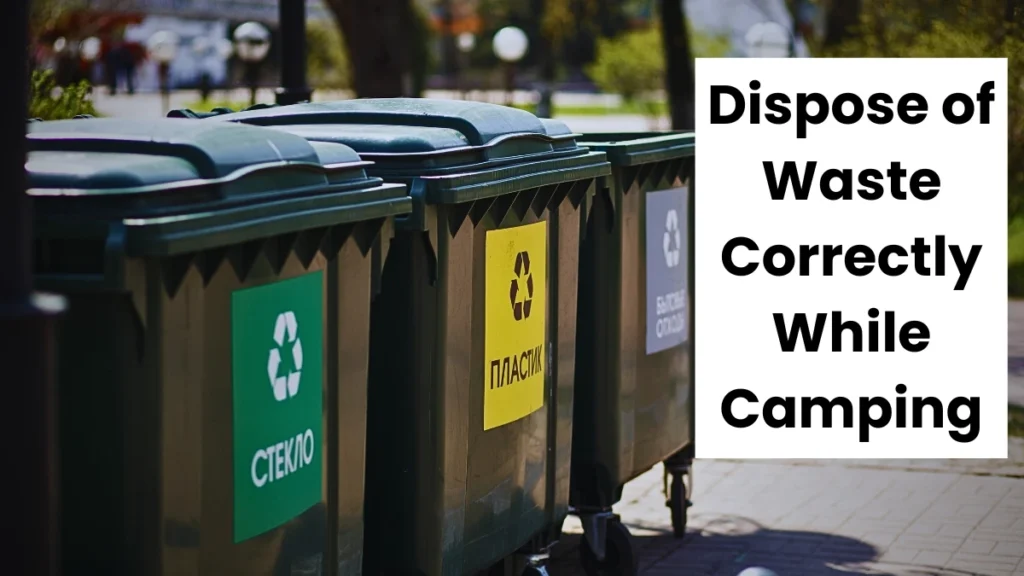
Correctly putting off your waste is crucial for preserving environmental fitness and adhering to campsite guidelines. Familiarize yourself with the waste disposal hints of your camping location. Many campsites provide precise waste disposal websites or recycling stations.
Ensure that you observe those hints and eliminate your tenting trash at the appropriate locations. If no disposal facilities are available, take all of your waste with you and take it away to a suitable region outside the campsite.
6. Use Biodegradable Products
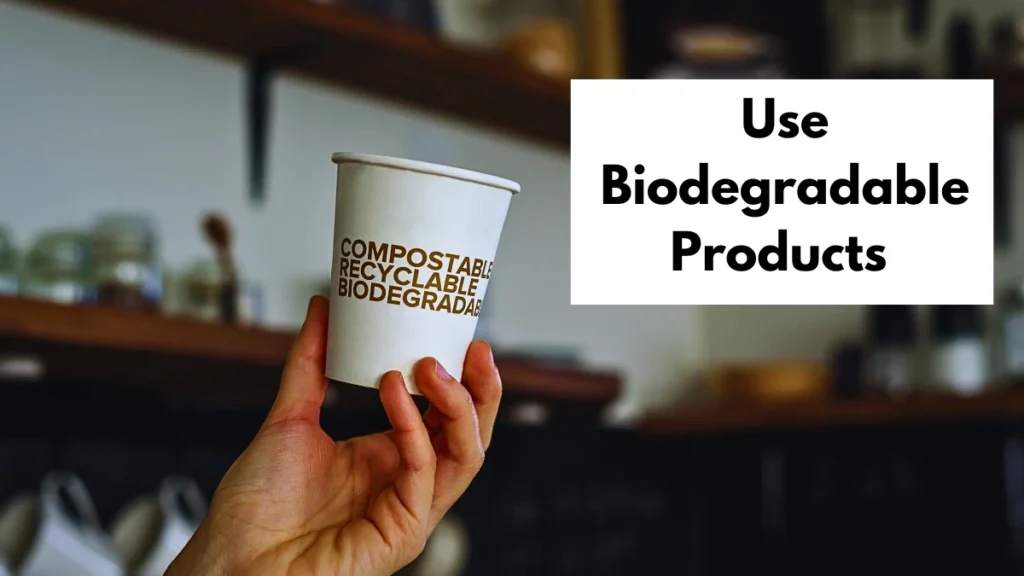
Choosing biodegradable products could make a big difference in dealing with your camping kitchen waste. Biodegradable soaps and cleansing merchandise destroy down extra effortlessly and feature a lesser environmental impact as compared to standard products.
Look for items categorized as biodegradable or compostable while looking for camping elements.
7. Practice Composting
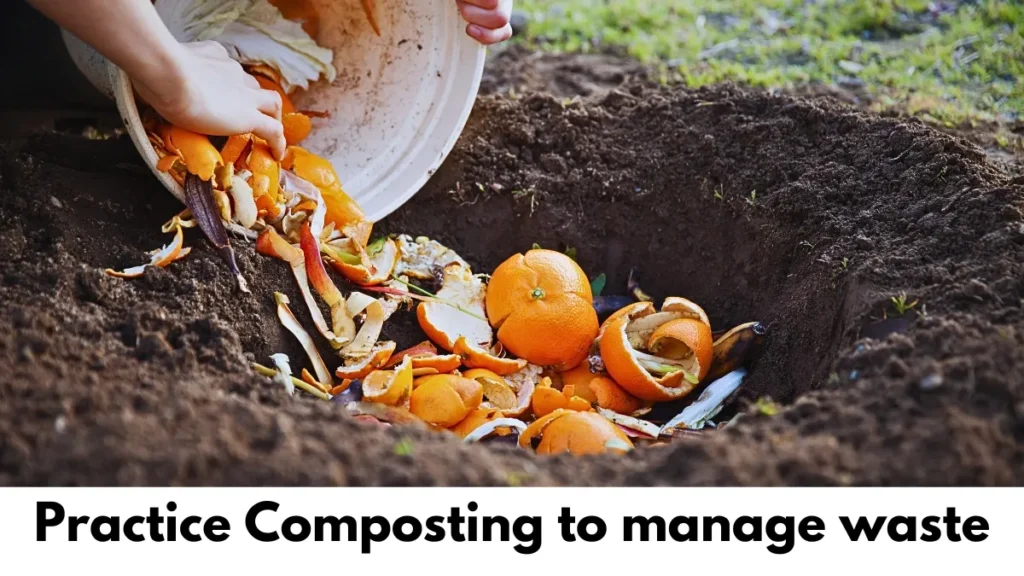
Composting is a super way to manage organic waste and contribute to a healthier environment. Set up a small composting system for meal scraps like fruit and vegetable peels, coffee grounds, and eggshells.
If composting isn’t viable at your campsite, deliver a compostable waste bag that you could eliminate at a composting facility.
Handling Camping Trash Correctly
Managing camping waste efficiently includes more than just disposal. Here are some recommendations to make certain you deal with it nicely:
- Designate a Trash Area: Set up a selected spot at your campsite for trash series. This makes it less difficult to control and preserve some of your waste.
- Compact and Dispose Properly: Compact your trash to save area and make it easier to transport. Make certain to cast off it at distinct waste disposal web sites whilst you depart the campsite.
- Avoid burning trash: Burning trash can launch harmful chemical compounds into the air and is often prohibited. Always pack out your trash or take away it consistent with neighborhood regulations.
The Importance of Packing Your Trash
Here’s how to pack your kitchen items or trash correctly:
- Use Heavy-Duty Bags: Invest in exceptional trash bags that might be long-lasting sufficient to handle the weight and capability of sharp items in your waste.
- Double Bag When Necessary: For introduced safety, double-bag your trash, especially when you have food scraps or objects that would leak.
- Keep It All Together: Ensure all your trash is accumulated and packed collectively to avoid littering the campsite or leaving objects at the back.
- Proper Food Storage: Use airtight containers to keep food clean and limit waste.
Conclusion
Effectively managing waste in a camping kitchen is vital for keeping the surroundings and making sure a pleasing camping experience. By getting to know how to manage waste in a camping kitchen, managing camping trash nicely, and knowing a way to pack your trash, you make a contribution to a purifier, better sustainable outdoor environment.


